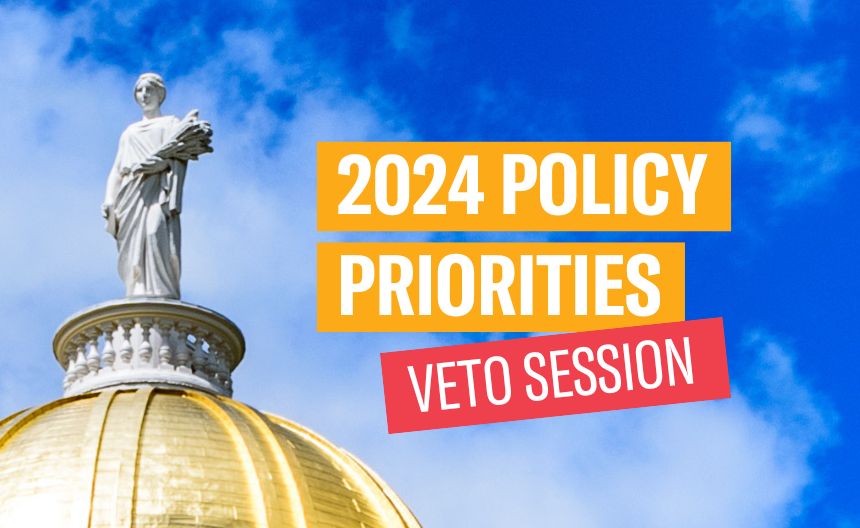Governor Scott has used his veto power on several bills since the end of the legislative session in May. Thankfully, this is not a guaranteed end for all of these bills, as legislators will have an opportunity to come back for a brief veto session on June 17th. Read on for more information about how we got here, what a veto session is, what to expect next week, and how you can take action.
So how did we get here?
The legislature has the power to make laws, and once a bill passes through both the House and the Senate, it makes its way to the governor’s desk. While under consideration, the governor can do one of three things: 1) sign a bill into law, 2) veto a bill, or 3) allow it to become law without a signature.
If the governor vetoes a bill, it is then returned to the legislature during what is called a veto session.
What is a veto session?
During a veto session, legislators can consider overriding a veto on any bill that has been returned to the legislative body. The veto session is an important part of our legislative process, as it allows for the House and Senate to work towards an override and affirm their legislative intent for a bill to become a law.
A veto may be overridden by the legislature if there is a two-thirds majority in favor of overriding in each chamber. If the House and Senate chambers successfully override the governor’s veto, the bill will become an official law with an act number assigned.
What bills impacting Vermonters’ civil rights and civil liberties did Governor Scott veto?
Of the vetoed bills from this session, we are focused on two pieces of legislation that we hope the legislature will override: H.645, an act related to expanding restorative justice approaches in diversion, and H.72, an act relating to authorizing and funding overdose prevention centers (OPCs)
H.645 creates a more equitable avenue to divert instances of harm or wrongdoing away from our criminal legal system into a restorative justice, community-based process in all Vermont counties. Restorative justice techniques have been shown to reduce recidivism and foster community accountability, improving public safety for all.
H.72 is a harm reduction bill that will authorize the creation of overdose prevention centers. Overdose prevention centers are medical facilities staffed by professionals that provide a clean, safe environment for people to use drugs with access to on-site medical care and without fear of being criminalized. They provide access to sterilized syringes, fentanyl test strips, overdose reversal medications, and other life-saving tools.
What can I do to help get these bills passed into law?
Legislators need to hear from you! Contact your lawmakers today and urge them to prioritize overriding the veto of H.645 and H.72 during the upcoming veto session. Use our action form to contact lawmakers about overdose prevention centers, or find your legislators’ contact information on the legislature’s website and reach out about both bills.
The legislature has scheduled only one day to convene for the veto session, and with that there is limited time to override vetoes. This is why we urge you to contact your legislators and tell them to override Governor Scott’s veto of H.72 and H.645. Criminalization will not solve the problems we face—but investments in evidence-driven strategies like overdose prevention centers and restorative justice will.

